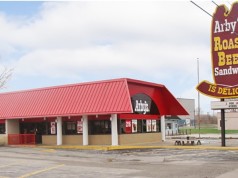Huizenga Votes to Help Flint Recover, Strengthen Great Lakes Economy
WASHINGTON, D.C. – (RealEstateRama) — Congressman Bill Huizenga (MI-02) voted in support of the Water Resources Development Act of 2016 (WRDA) which provided federal infrastructure assistance to Flint, and included Congressman Huizenga’s amendment to permanently prioritize Army Corps funding for the Great Lakes Navigation System (GLNS). The system is a critical international waterway that extends from the western end of Lake Superior to the Gulf of St. Lawrence on the Atlantic Ocean, a distance of over 2,400 miles. The U.S. portion of the system includes 140 harbors and over 600 miles of maintained navigation channels. The Great Lakes Navigation System can handle 200 million tons of cargo, generating $18 billion in economic activity and supporting 130,000 jobs.
The Water Resources Development Act, including both Congressman Huizenga’s amendment, and the funding for Flint passed the House this evening by a vote of 399 to 25. Rep. Huizenga spoke on both the importance of including Flint in this legislation as well as his amendment to strengthen local economies across the Great Lakes:
My family is originally from flint, on my mom’s side. I have many very fond memories growing up as a child and going to visit aunts and uncles and cousins. I recently visited those who have been affected and it is tragic. The simple fact is, if these were folks who were affected by the breach of a dam or by a nuclear plant meltdown, we would not be turning our backs on them; we would be taking care of them.
We should be doing the same thing with the people of Flint. The people of Flint have experienced failure of government at all levels for decades. That has been well acknowledged. What we have not talked about is how we are going to care for these citizens. Let’s fix the management issues, but more importantly let’s care for our fellow citizens and make sure the children of Flint are going to have the same opportunity as every other child in Michigan and the United States
Rep. Huizenga on Strengthening Local Economies in the Great Lakes Region:
Mr. Speaker, I am offering this amendment because Great Lakes ports and harbors are facing a crisis. The Great Lakes Navigation System is a critical international waterway that extends from the western end of Lake Superior to the Gulf of St. Lawrence on the Atlantic Ocean, a distance of over 2,400 miles. The U.S. portion of the system includes 140 harbors and over 600 miles of maintained navigation channels. This system can handle 200 million tons of cargo that generate and sustain 130,000 jobs and $18 billion in economic activity across the eight Great Lakes states and around the country.
16 million cubic yards of sediment clog these ports and waterways in the Great Lakes. It is estimated that it would cost nearly $200 million to make them fully functional. In addition, the critical Soo Locks require $115 million to complete maintenance rehabilitation while Great Lakes breakwaters and jetties need $250 million for repairs. We must act before the crisis in the Great Lakes grows even worse. Just two years ago, the House overwhelmingly passed the Water Resources Reform and Development Act (WRRDA) 412-4 and it was later signed into law. WRRDA 2014 included a provision that temporarily set aside ten-percent of Army Corps priority funding for the Great Lakes Navigation System.
Consistent with the spirit of WRRDA 2014, my amendment simply provides the 140 federally maintained commercial and recreational Great Lakes ports and harbors with access to dependable funding by ensuring that the set-aside does not expire. These federal harbor channels, like Pentwater, White Lake, Ludington, Muskegon, Holland, and Grand Haven in my district, are the “life blood” of these communities.
The federal government must meet its obligation to communities across the Great Lakes region. These ports and harbors are engines of economic growth that create jobs for American workers, farmers, and manufacturers. As the chairman knows, it would be my preference to ensure that ports and harbors across our nation are properly maintained by using the Harbor Maintenance Trust Fund (HMTF) for its intended purpose – harbor maintenance.
By working together since 2011, we have made significant progress. In FY 2011, only 47% of the Harbor Maintenance Tax that was paid into the HMTF was used to dredge and maintain our harbors because this trust fund was raided to pay for unrelated projects. Because of the progress we made in WRRDA 2014, the HMTF will retain 76% of the revenues that are intended for water infrastructure improvements and harbor dredging under the Appropriations Committee passed funding bill.
This is a huge win for coastal communities and our entire nation. I look forward to building on this success in the future and I’d like to thank the Chairman for working with us.




